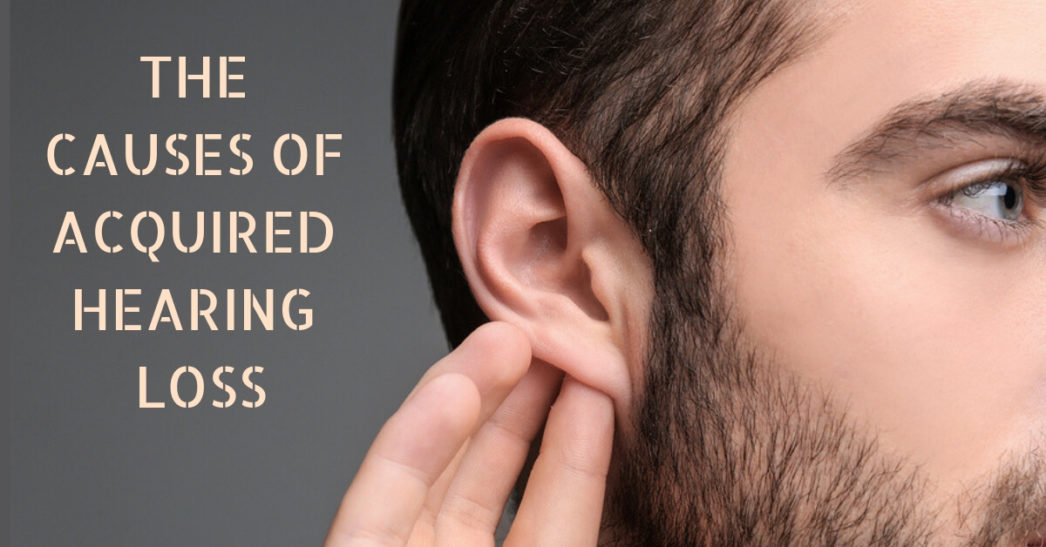[As a condition that affects 38 million Americans, hearing loss is one of the most common health concerns. But there is still some way to go to fully understanding how and when it develops. Researchers are still working hard to figure out what makes us lose our hearing, and how best to prevent and treat the condition. According to the latest research, the general causes of hearing loss come from three sources:
- As complications from existing medical conditions.
- As side effects of certain medicines.
- Through exposure to excessive noise.
Hearing loss from medical conditions
Ear infections are a common cause of hearing loss.Also known as acute otitis media, middle ear infections are common among young children and result in irritation, pain and inflammation of the inner ear. Excess fluid build-up in the space behind the eardrum can obstruct the movement of the eardrum and middle ear bones, which leads to hearing problems.
Younger children are more likely to contract middle ear infections because their immune systems aren’t as sophisticated, which makes it tougher for them to fight off respiratory infections. Additionally, their Eustachian tubes start out more horizontal, making fluid harder to drain from the ear.
Believe it or not, high blood pressure can also lead to hearing loss. It can lead to damaged blood vessels, leading to fatty build up. This obstructs blood flow to the ears, impairing the performance of your ear cells.
This connection was also made in a study which showed a connection between hypertension and hearing loss. In a hospital in India, researchers analysed 274 patients between the ages of 45-64, and discovered that as blood pressure increased, hearing ability dropped. The good news was that once high blood pressure was bought back to normal levels, the patient’s hearing improved as well. Study authors concluded that high blood pressure has the ability to speed up hearing loss, and recommends those with high blood pressure to get their hearing checked.
Hearing loss as the side effect of medication
There are some medications which areconsidered ototoxic (damaging to your ears) in some circumstances. Worryingly, more than 200 of them are currently on the market according to the American Speech-Language-Hearing Association. Although it is not a guarantee that they will cause hearing loss, it is important to be aware of them in case the unexpected occurs. If you are taking medication and have noticed symptoms of hearing loss, tinnitus, or vertigo, you should see your healthcare provider to discuss your options. Here is a list of the medications most commonly known to cause hearing loss:
- NSAIDs such as naproxen and ibuprofen, especially in adult men
- Large quantities of aspirin (usually 8 to 12 pills a day)
- Quinine, which is found in muscle relaxants for night cramps and some malaria medications
- Loop diuretics which are used for high blood pressure and heart problems
- Certain antibiotics which treat kidney disease and similar conditions, usually the group known as aminoglycosides
- Certain antidepressants, including the SSRIs Celexa, Luvox, Paxil, Prozac, and Zoloft, as well as the tricyclics Clomipramine and Amitriptyline
- Some methods of chemotherapy, such as cisplatin, carboplatin or bleomycin
Hearing loss from exposure to noise
Also called Noise-Induced Hearing loss (NIHL), hearing loss can occur from damage to the ear cells in the inner ear that we use to pick up sound. This is caused by exposure to either a very loud sound or a serious of loud sounds over a period of time. The symptoms of NIHL are usually muffled hearing and trouble hearing conversation in noisy environments.
Damage from exposure to excessive noise can happen at any age. People from all ages, including children, teens, young adults, and older people, can develop NIHL. This type of hearing loss shows that it is not just the older generation that are susceptible to this condition.
The experience of NIHL can be different from the hearing loss experienced through medications or existing conditions. It is often slower and more difficult to detect. This makes it tough for many people to see that they actually have a problem until it’s too late. Unfortunately, this type of hearing loss is also permanent – no surgery or medication currently exists to relieve symptoms of NIHL. That is why it is so important to practice prevention and early identification.
Luckily, NIHL is preventable by using ear protection at noisy events and places and practicing safe earphone use when using smartphones and other streaming devices.
Visit Us at Comprehensive Ear and Hearing
It is important to schedule annual hearing check-ups as a way to monitor your hearing abilities. Here at Comprehensive Ear and Hearing, we provide hearing tests and a suite of hearing health services to ensure that you hear at your best. To schedule an appointment, call us today.


